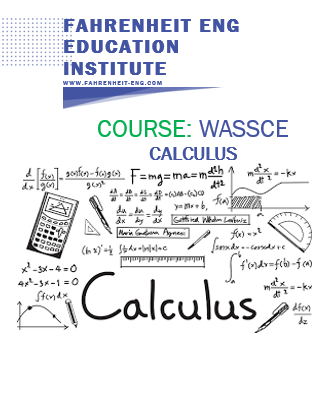Calculus

About Course
Studying Calculus offers the following career options:
- STEM Fields:
- Engineering (various disciplines such as mechanical, electrical, civil, aerospace)
- Physics, Chemistry, Biology (especially in areas involving modeling cell motion or population dynamics)
-
- Computer Science and Software Development,
- Data Science and Machine Learning,
- Business and Finance:
- Financial Analyst
- Investment Banking,
- Actuarial Science
- Quantitative Trading
- Economic Modeling
- Business Administration (with a focus on quantitative analysis)
- Healthcare and Medicine:
- Medical Research
- Biostatistics
- Pharmacology
- Medical Imaging
- Environmental Science:
- Climate Modeling
- Environmental Engineering
- Ecological Forecasting
- Operations Research:
- Logistics and Supply Chain Management
- Optimization Specialist
- Academia and Research:
- Mathematics Professor or Researcher
- Applied Mathematics in various fields
- Technology and Innovation:
- Artificial Intelligence and Machine Learning Engineer
- Robotics Engineer
- Quantum Computing Researcher
- Aerospace and Defense:
- Aerospace Engineer
- Defense Systems Analyst
- Satellite Systems Engineer
- Energy Sector:
- Renewable Energy Analyst
- Nuclear Engineer
- Power Systems Optimizer
- Data Analytics and Business Intelligence:
- Data Analyst
- Business Intelligence Specialist
- Market Research Analyst
Key points to consider:
- Versatility: A strong foundation in calculus provides analytical and problem-solving skills that are valuable across many industries, making calculus graduates adaptable to various career paths.
- Interdisciplinary Applications: Many fields now require a combination of mathematical skills with domain-specific knowledge, creating unique career opportunities for those who can bridge these areas.
- Emerging Fields: With the rapid advancement of technology, new career opportunities that require strong mathematical skills, including calculus, are constantly emerging, especially in areas like AI, data science, and quantitative finance.
- Graduate Studies: For some specialized careers, particularly in research or academia, advanced degrees (Master’s or Ph.D.) may be necessary or beneficial.
- Complementary Skills: To enhance career prospects, students should consider pairing their calculus knowledge with other relevant skills such as programming, data analysis, or specific industry knowledge.
- Ongoing Debate: There’s an ongoing discussion in the educational community about the balance between calculus and other mathematical disciplines like statistics in preparing students for various careers. Some argue that statistics might be more universally applicable for certain career paths.
Student Ratings & Reviews

No Review Yet
